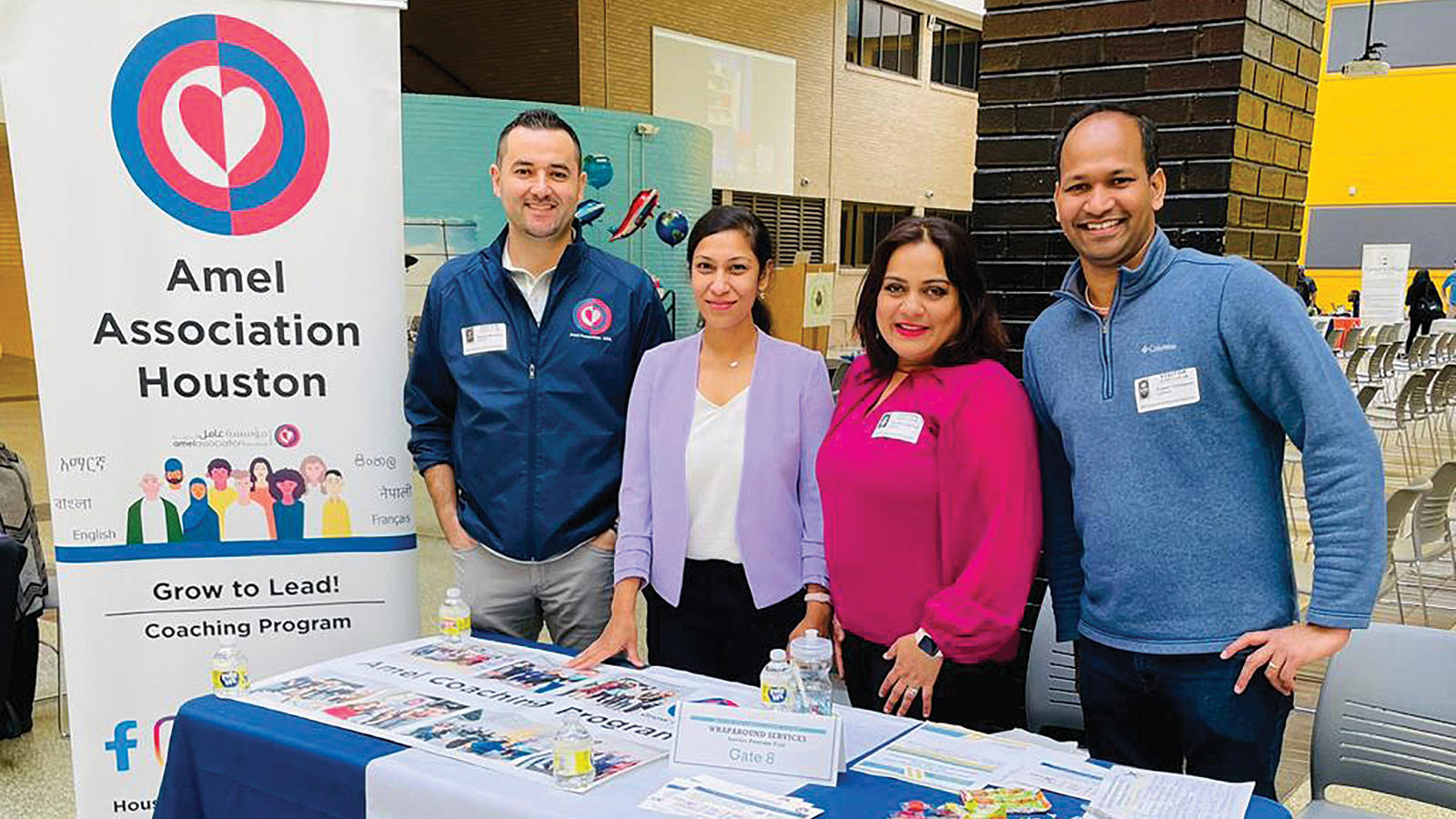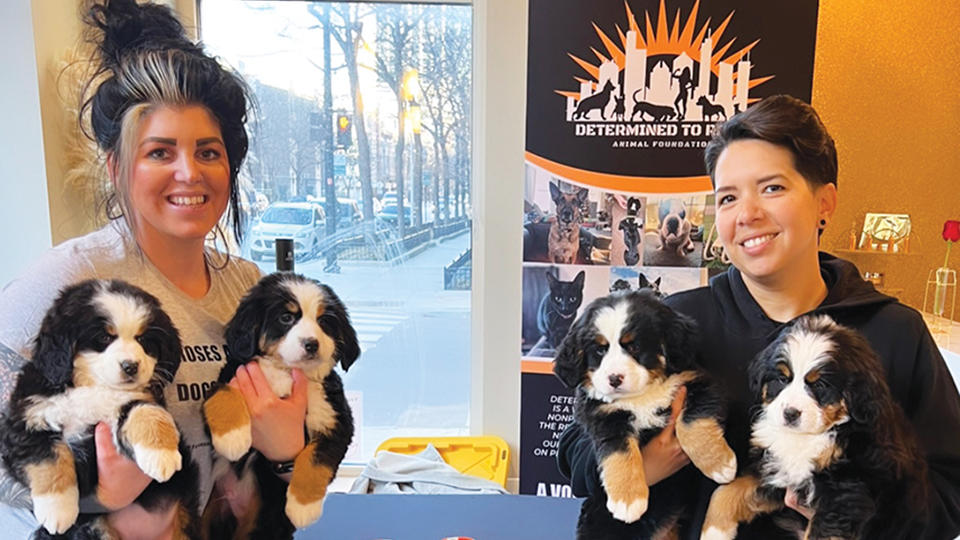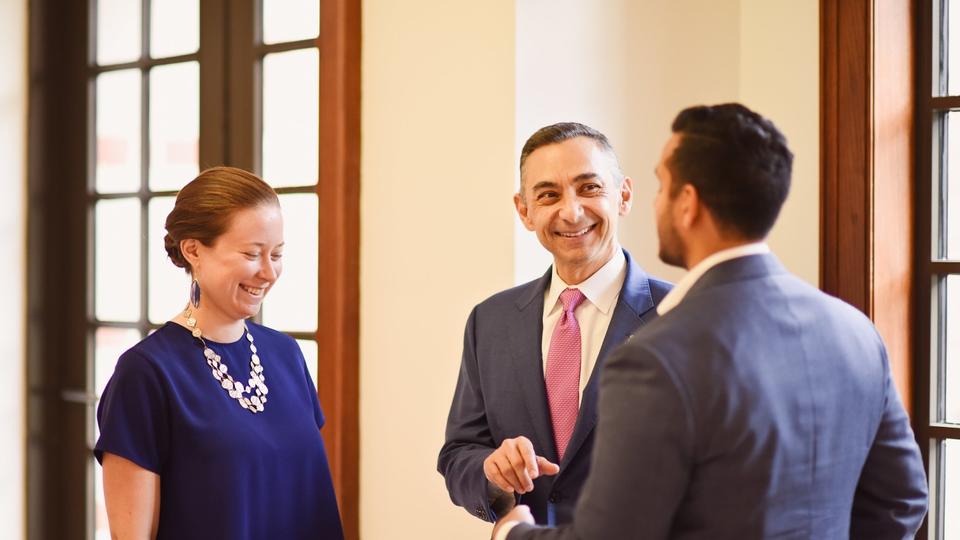What Houston's Future Holds

Assaad Mohanna (’21) is using lessons from childhood — and his experience at Rice — to reimagine the future workforce of Houston
When civil war broke out in Lebanon in 1975, Kamel Mohanna, a pediatrician, knew medical help would be needed in the area — no matter which side of the conflict a patient might be on. Three years later, at the peak of humanitarian need, Kamel decided to take action to support the physical and mental health of displaced people in the region. Within a year, he had reached out to humanitarian organizations and health care professionals to found Amel Association International to provide emergency services and satisfy basic needs for refugees and asylum seekers. Over time, Amel Association International became one of the largest NGOs in Lebanon, with 28 medical centers, six mobile medical units, two mobile education units and more than 1,400 workers and volunteers.
At Kamel’s feet during Amel’s early years was his son, Assaad, who, by 11 years old, was assisting his dad and other volunteers — working with families and playing with the children who had left their homes. Young Assaad grew up to pursue a career in the oil and gas industry, but the Amel Association was always in the background. After following work to Dubai and Saudi Arabia, he came to Houston and used the lessons he learned from his father to establish the Houston Chapter of Amel Association International. The new chapter served as the impetus for a capstone project for Assaad and his fellow classmates in the Professional MBA program — Rice students from India, Colombia and the Middle East.
“As entrepreneurs walking into a new market,” says Assaad, “we identified the needs of underserved populations in Houston and figured out what we wanted to offer these communities.”
Like the “mothership” organization, as Assaad calls it, Amel Houston sought to support the mental and physical health of refugees, asylum seekers and more, but the group also saw a gap in the services needed in the American city. “We didn’t want to just reproduce what was being done in Lebanon,” says Assaad. “Rice helped us realize that this is not one size fits all.” In Lebanon, for example, Amel Association International assists with the fundamental integration services of refugees — access to food, shelter, health care, employment — and there are already plenty of Houston organizations offering those services. What Amel Houston could offer would be leadership coaching to underserved high schoolers — the very people who would go on to build the fabric and future of Houston.
Assaad and his team knew from their experience with the CoachRice program through the Doerr Institute for New Leaders that mentorship may be familiar to high schoolers, but leadership coaching is different — proactive instead of reactive. “Leadership coaching is more of an iterative, collaborative process between the coach and the coachee that identifies critical areas for improvement,” says Assaad. Rather than merely advising students — as a mentor may do — a coach will work with students to address areas of their lives or work that are hindering a student’s growth and potential.
As graduates of the CoachRice program, the Amel Houston team knew that they had the opportunity to assist not only high schoolers, but their peers as well. Rice students participating in CoachRice earned 60 hours of training time through the modules but needed 100 additional coaching hours in order to be accredited by the International Coaching Federation as a certified coach. It was a win-win: leadership coaching through Amel Houston would help high schoolers in economically challenged communities realize bigger dreams in the U.S. — like college or a career in business — all while giving CoachRice participants the hours they needed to realize their own dreams.
Amel Houston recently launched their second cohort — and the stories of empowerment help Assaad know he’s holding up his father’s legacy. He points to one student who signed up for the pilot program after being nominated by his school administration to participate. Due to his family and job search obligations, the student often missed class and gave little attention to his academic performance. But things took a positive turn when he was paired with his coach, Christoph. After the student attended several one-on-one coaching sessions on the school campus over a period of four months, his teacher made a point of visiting with the Amel Houston team to give heartfelt feedback. Her student had become more energized, present and confident. The student put it this way: “I feel like I have matured and expanded. I no longer get stuck. Instead I know I can find a solution,” he said. “I am more focused on what matters to me, and I am making progress with my goals”.
Amel Houston’s work is supported by three principles. First: Support local communities by empowering underserved communities and giving them equal opportunities to grow. Second: Step up DE&I efforts in companies by widening the talent pool in Houston. Successful firms are organizations where employees feel comfortable being themselves and take an extra effort toward making their workplace great. And third: Amel Houston hopes to make an impact on the future workforce and on the city.


